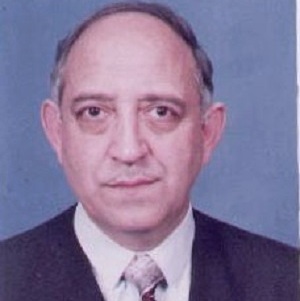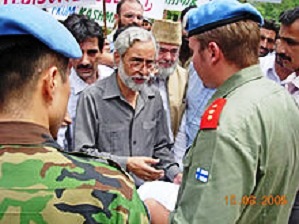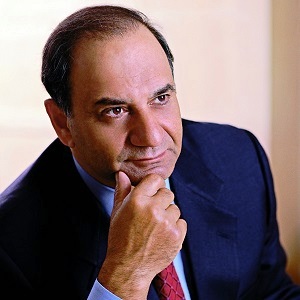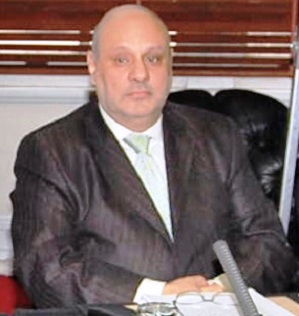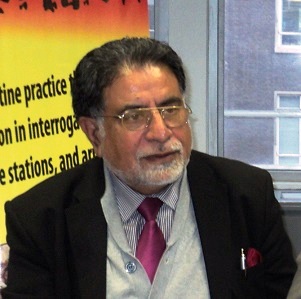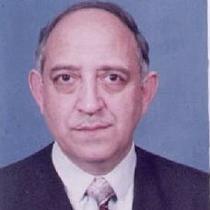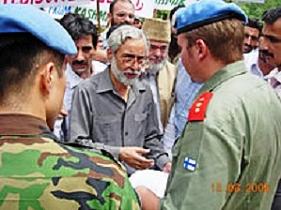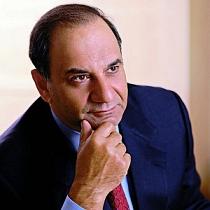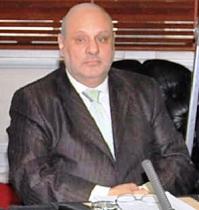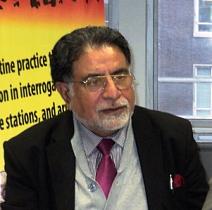Kashmir: Enervated Diaspora encompassed
Arjimand Hussain Talib, a columnist from Kashmir´s capital city Srinagar writes, "Almost every Kashmiri I know living outside nurses a secret dream – to return home one day to never leave again. The intensity of justifiable ifs and buts often overwhelms the dream of a return for many. Yet some others in recent years have braved odds and have returned. Today, as what appears, most of them have either gone back or are planning to pack up and leave, perhaps never to return again". (Greater Kashmir, October 13, 2013). Leaving behind their kith and kin, extended families and cherished dreams in frustration is a question that needs probing to find an answer.
The decades old harsh realities of Kashmir’s historicity forced forbearing Kashmiris to adopt a close-knit family system to experience sense of security and interdependence. Traditionally till late fifties Kashmiris hardly travelled even to its own small border province Jammu just 200 miles away or beyond. But now thousands have unwillingly migrated to major Indian cities and capitals on international level. The threat to life through indiscriminate killings and destruction of property are the main reasons for people to flee and seek refuge outside. Due to unavoidable circumstances, the flow of capital in billions to Indian cities a resultant financial bonus is added onto the political advantage earned by India by projecting reluctant migratory business houses and their families as victims of "insurgency, militancy and terrorism".
As reported in the media and documented that Kashmiris, out of compulsion, do face wrath of bigotry and intolerance of fundamentalist forces anywhere from north to south India. Many, especially, youngsters studying in Indian colleges and universities lost their life in mysterious circumstances and no one knows why these young people systematically are done to death in cold blood. People moved to Indian cities with capital and merchandise and conduct themselves in very difficult situations braving a sense of fear and uncertainty. The only way out for Kashmir to interact with rest of the world is through India as all other exit points for access through land and air have been plugged.
In India, Kashmiri businessmen, students or people seeking medical care running in thousands generally under surveillance from intelligence agencies tracking their every step, most of the times are subject to harassment, intimidation and bullying. It is a situation that cannot be cured but has to be endured till Kashmir fighting for its legitimate right of self determination achieves the cherished goal.
Many among Kashmiri Diaspora scattered and settled in UK, USA, Canada, and Middle-East or in Australian continent find it extremely difficult to voice their concern about happenings in Kashmir. The passports of many have been impounded and many scared to return to face reprisals, stories of Indian torture chambers sending shivers through their spine. Kashmiris holding international passports experience nightmarish situation at Indian Embassies and Consulates when applying for visas to visit their ancestral home. A fear psychosis created works for India to keep Expat community away from coming onto the roads and streets of world capitals to tell the stories of atrocities committed on people back their home in Kashmir.
Some glaring cases of victims of political vendetta can be cited of people unable to visit their own homes for decades on to see their families, extended families or friends. It is an irony of fate that the inhabitants for their political beliefs or a resolve to fight for rights usurped are not allowed to set foot on the land they own by occupiers who have no right to be there.
Dr. Ayub Thakur: Nuclear Physicist fought for Kashmir´s right of self-determination. In early 1980´s as professor in Kashmir University he began organising students and colleagues to form an intellectual response to Indian occupation. Indian government and its agencies in pursuit had him dismissed from job, arrested, tortured and put behind bars for five months. After release hounded by agencies a frustrated Thakur chose to accept an offer at King Abdul Aziz University, Saudi Arabia. The undiminished zeal and urge to help his people in Kashmir living in perpetual hardships and occupational tyranny led him to migrate to UK in 1986 where he pursued his mission to liberate his homeland. India impounded his passport and thenceforth could not visit his homeland and the freedom fighter died at the age of 55 in London on March 10, 2004.
Barrister Abdul Majid Tramboo: A lawyer, Barrister Tramboo has been very active in freedom movement and operates from his office in Brussels next to the European Union headquarters. A successful immigration lawyer in UK, Tramboo comes from an affluent Kashmiri family. He moved to UK where he took the London Council of Legal Education exams. In 1988, he served as in-house Counsel for immigration, asylum and nationality matters.
In 1990, Tramboo joined the United Kingdom Immigration Advisory Service (UKIAS), London, as a Tribunal Counsellor. In spite of enjoying a meritorious distinguished career, he committed himself to the cause of Kashmir and expended all his efforts to fight the case of Kashmir´s freedom in international forums like European Union. His selfless efforts in this direction are acclaimed inside and outside Kashmir. But unfortunately he cannot visit his home as imprisonment and threat to his life are the most likely things to happen.
Professor Nazir Ahmed Shawl: A scientific researcher with a degree in Education having a Masters in science to his credit. A distinguished academic career with extensive experience worked in the field of international human rights. Concomitantly, he was a coordinator on a UNICEF Assisted Project -Education Curriculum Renewal and guest lecturer associated with Department of Distance Education at the University of Kashmir teaching courses in the bachelorette program. Professor Shawl is a committed freedom fighter using his intellectual prowess to promote the cause of freedom movement on international level. He currently lives in London and hopes to return to his homeland once the international community realises that enough is enough.
Farooq Kathwari: Based in US, a sagacious successful businessman holds a B.A degree in English Literature and Political Science from Kashmir University. MBA in International Marketing from New York University, Kathwari is the chairperson of Kashmir Study Group, an organisation he founded in 1996 and among his many industry and humanitarian honours; he has been inducted into the American Furniture Hall of Fame; recognized by the U.S. Government as an Outstanding American by Choice and serves on several not-for-profit organizations. He is a member of the Mahatma Gandhi Centre for Global Nonviolence, and a patriot who champions the cause for independence of Kashmir.
Muhammad Farooq Rahmani is a writer, teacher, and journalist; author of several books, pamphlets and articles on Kashmir conflict. Rahmani served six prison sentences in various jails, lockups and torture chambers including notorious correction centre of Hari Niwas located at picturesque Dal Lake Srinagar, Kashmir. Freedom fighter, a prisoner of conscience was forced to migrate to other part of Kashmir administered by Pakistan.
Rahmani attended OIC foreign ministers conference in Istanbul on August 4-8, 1991 and OIC Summit Dakar on December 9, 1991. To promote Kashmir cause on international level attended several important conferences, Summits and seminars on Kashmir at UNCHR Geneva, OIC Foreign Ministers Contact Group on Kashmir in New York at UN Head Quarters in Sep 2003 and 2004, international Kashmir conference Capitol Hill Washington.
Kashmir expects international community to rise to the occasion and save millions of Kashmiris from living the life of caged animals. Facing wrath of armed to teeth of more than a million trigger happy men in uniform, people in Kashmir feel choked and hapless even to complain. Expatriate community does want to contribute and be part of the independence struggle but India with its connections and resources available manages to stifle voice for freedom busy crushing it with an iron hand. India is talking of constructing a "Berlin Wall" between two Kashmirs.
Comments
There are 0 comments on this post


